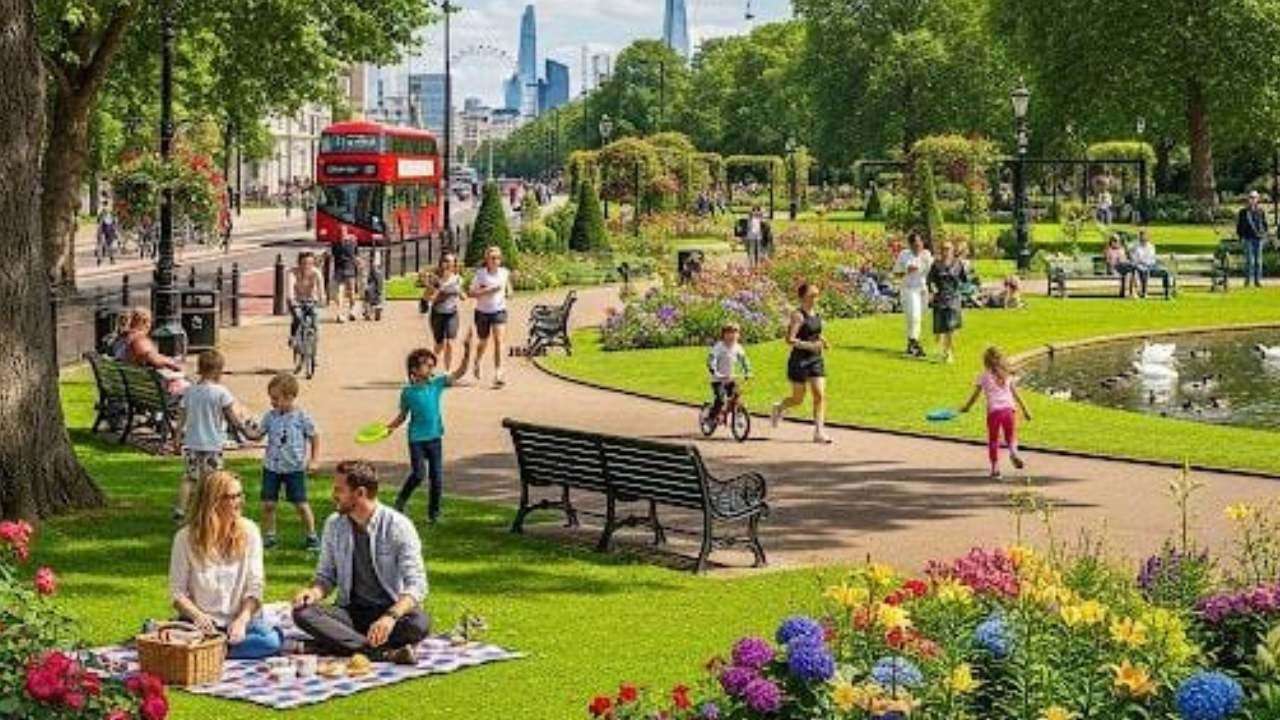Thousands of pro-Palestine demonstrators demanded an immediate ceasefire in Gaza during a march through central London.
The demonstration was coordinated by the Palestine Solidarity Campaign (PSC) in response to Hamas strikes on southern Israel on October 7, which resulted in over 1,200 fatalities and over 240 kidnappings before Israel launched months-long attacks on the Gaza Strip, inflicting thousands of injuries and fatalities.
In order to "show solidarity with the people of Palestine for all that they are suffering through," singer Charlotte Church joined demonstrators at the head of the march.
She said: “I am here today to call for an immediate ceasefire, to ask our government and governments all over the world to send as strong message as we possibly can.
“But a strong, a peaceful a loving message, that’s what every single march that I’ve been on for Palestine has been about.
“There’s been singing there’s been drumming, yes, there’s been emotion, but in the majority that emotion has been love, has been compassion because that’s why we’re all here. We’re all here because we cannot bear what we’re witnessing.
“We cannot bear to see civilians, children, women slaughtered. And so we are here because our hearts are so full of love for the Palestinian people.”
Church added: “We’re also showing that we are absolutely not going to tolerate our government being a part of propping up an apartheid regime. We as citizens of the UK will not tolerate our government being complicit in this.”
Demonstrators waved Palestine flags and carried banners which read “stop the war on Gaza” and “ceasefire now” as they marched from Hyde Park Corner to the US Embassy.
Protesters chanted “free Palestine”, “what do we want? Ceasefire. When do we want it? Now” and the slogan “from the river to the sea, Palestine will be free”.
Female volunteers from Friends of Al-Aqsa (FOA) joined protesters on the march, which falls a day after International Women’s Day, to “highlight the Palestinian genocide as a gendered issue”.
A spokeswoman for FOA said: “Today’s protest is especially important as it falls just after International Women’s Day. This is a day intended to promote gender equality around the world, but that cannot be achieved whilst civilians in Palestine are under continued bombardment.”
Former Labour leader Jeremy Corbyn, who now sits as an independent MP, spoke to pro-Palestine protesters and posed for pictures with them after the march.
He said the demonstration “is huge and there will be as many of them as it takes”, adding: “The demonstration today is enormous and we’re here because we’re appalled at the bombing that’s still going on in Gaza.
“It’s all very well for Joe Biden to say they’re going to build a port to deliver aid, (it would) be far better if they stopped delivering arms to Israel and made sure there was a ceasefire. And this demonstration is huge and there will be as many of them as it takes.
“We’re also demonstrating our right to demonstrate, there’s so much talk about people shouldn’t be on demonstrations, well today there’s a lot of us here, all faiths, all ethnic groups, men and women, led by women, no problem, no trouble, it’s a march of love.”
Labour MP Apsana Begum took to the stage after the march to highlight it came after International Women’s Day, adding: “As we pay tribute this weekend to our recent history of women’s struggles, as we look to a future of women’s liberation, we must be clear that this means liberation for all women.”
It was revealed the cost of policing Gaza-related protests in London has reached over £32 million and has required 35,464 officer shifts and more than 5,200 officer rest days to be cancelled, the Metropolitan Police said.
It added that a “robust policing plan” was in place for a “busy weekend in the capital”.
It comes as the government’s counter-extremism tsar warned that London’s streets have become a “no-go zone for Jews” during pro-Palestine protests.
Robin Simcox said a “permissive environment for radicalisation” was developing as he welcomed the Government’s forthcoming new definition of extremism.
And last week prime minister Rishi Sunak warned that democracy is being targeted by extremists and said there are “forces here at home trying to tear us apart”.
[caption id="attachment_5768" align="aligncenter" width="768"]
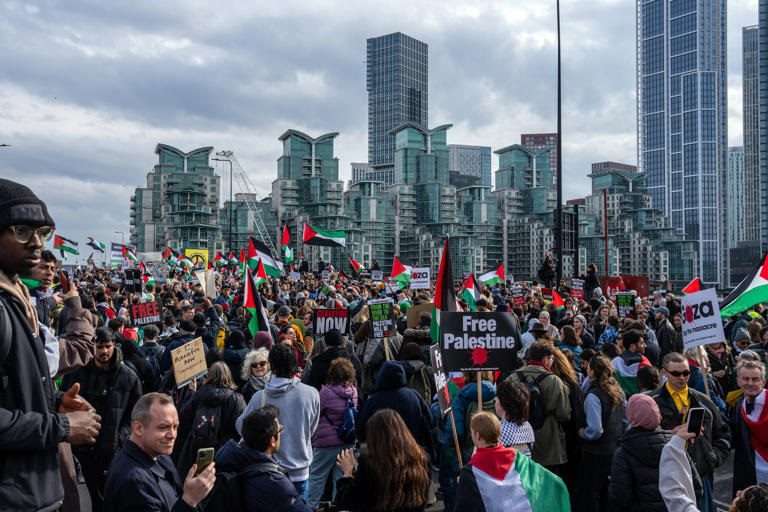 Protesters march in support of Gaza (Getty Images)
Protesters march in support of Gaza (Getty Images) [/caption]
Mr Sunak, in a message aimed at those taking part in pro-Palestine protests, urged people to reject extremist messages.
Ben Jamal, director of the Palestine Solidarity Campaign, said the march is the 10th national march and it is “unprecedented” in recent British political history to see “this many people marching for this length of time”.
He said the protesters think the government is “complicit” in what is happening to the people of Gaza and is “failing to put pressure on Israel” and “failing to call unequivocally for a ceasefire”.
Mr Jamal added: “That’s what’s motivating them to continue to march. And we know the government’s telling us ‘it’s time for you to go away, you’ve made your point, you’re all hatemongers’.
“You’ll see, people here come from all walks of life, young and old, many people here with young children.
“They’re looking at what’s happening, they see children’s bodies being pulled out of the rubble, they look like that, they say it could be my child, that could be my brother, that could be my sister. I want it to stop and I want my government to take action. That’s why they’re marching.”
A counter-protest to the pro-Palestine marches was held in Victoria, central London, on Saturday afternoon and organiser Itai Galmudy said they were “here to exercise our democratic right of making our voices heard” and that “Jews are not afraid and we’ve had enough of those anti-Israeli hate marches”.
 Protesters march in support of Gaza (Getty Images) [/caption]
Mr Sunak, in a message aimed at those taking part in pro-Palestine protests, urged people to reject extremist messages.
Ben Jamal, director of the Palestine Solidarity Campaign, said the march is the 10th national march and it is “unprecedented” in recent British political history to see “this many people marching for this length of time”.
He said the protesters think the government is “complicit” in what is happening to the people of Gaza and is “failing to put pressure on Israel” and “failing to call unequivocally for a ceasefire”.
Mr Jamal added: “That’s what’s motivating them to continue to march. And we know the government’s telling us ‘it’s time for you to go away, you’ve made your point, you’re all hatemongers’.
“You’ll see, people here come from all walks of life, young and old, many people here with young children.
“They’re looking at what’s happening, they see children’s bodies being pulled out of the rubble, they look like that, they say it could be my child, that could be my brother, that could be my sister. I want it to stop and I want my government to take action. That’s why they’re marching.”
A counter-protest to the pro-Palestine marches was held in Victoria, central London, on Saturday afternoon and organiser Itai Galmudy said they were “here to exercise our democratic right of making our voices heard” and that “Jews are not afraid and we’ve had enough of those anti-Israeli hate marches”.
Protesters march in support of Gaza (Getty Images) [/caption]
Mr Sunak, in a message aimed at those taking part in pro-Palestine protests, urged people to reject extremist messages.
Ben Jamal, director of the Palestine Solidarity Campaign, said the march is the 10th national march and it is “unprecedented” in recent British political history to see “this many people marching for this length of time”.
He said the protesters think the government is “complicit” in what is happening to the people of Gaza and is “failing to put pressure on Israel” and “failing to call unequivocally for a ceasefire”.
Mr Jamal added: “That’s what’s motivating them to continue to march. And we know the government’s telling us ‘it’s time for you to go away, you’ve made your point, you’re all hatemongers’.
“You’ll see, people here come from all walks of life, young and old, many people here with young children.
“They’re looking at what’s happening, they see children’s bodies being pulled out of the rubble, they look like that, they say it could be my child, that could be my brother, that could be my sister. I want it to stop and I want my government to take action. That’s why they’re marching.”
A counter-protest to the pro-Palestine marches was held in Victoria, central London, on Saturday afternoon and organiser Itai Galmudy said they were “here to exercise our democratic right of making our voices heard” and that “Jews are not afraid and we’ve had enough of those anti-Israeli hate marches”.
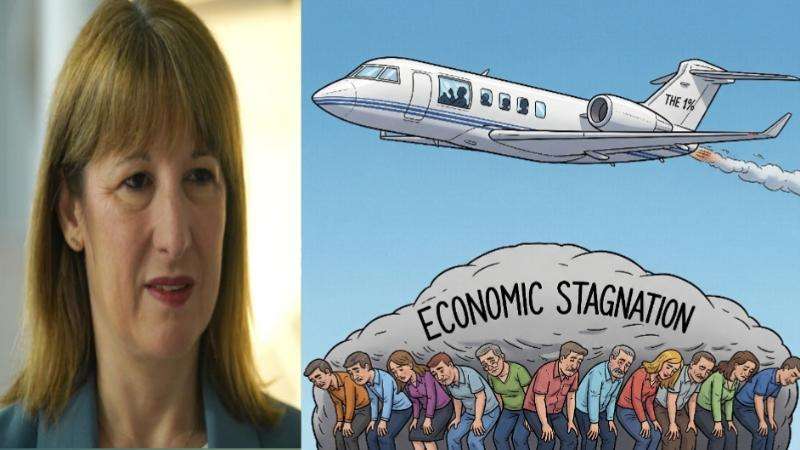
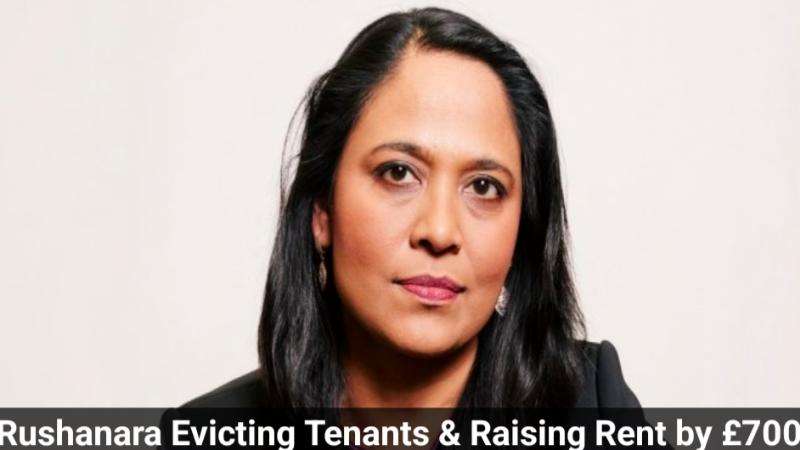
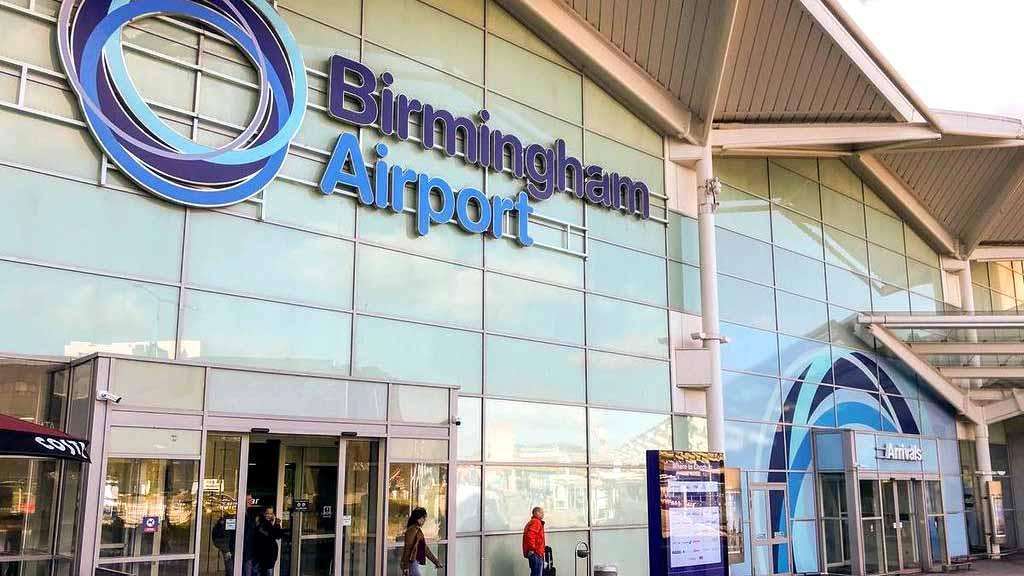
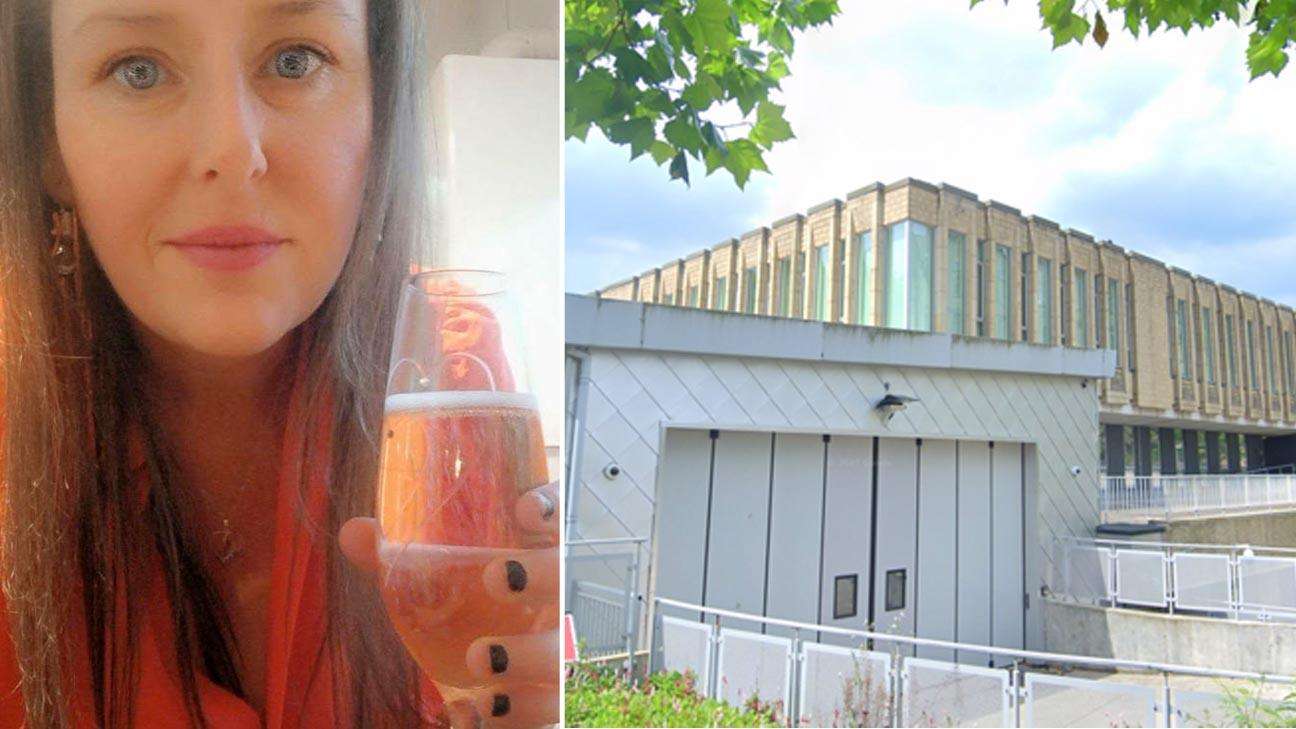



.svg)

